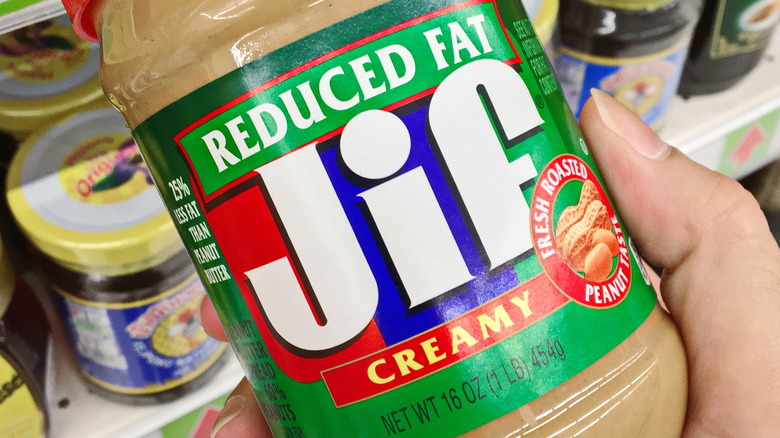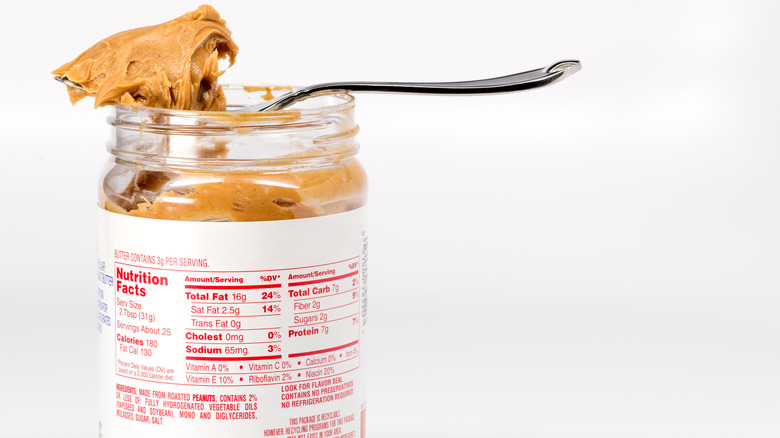Is Reduced-Fat Peanut Butter Good For You?
Whether you like peanut butter on sandwiches or enjoy it by the spoonful, there's no doubt that it's delicious. Along with flavor, it has several health benefits. Two tablespoons contain 9 grams of protein, and it is a good source of vitamin E, vitamins B6 and B3, copper, manganese, and magnesium. Because peanut butter helps your body maintain cholesterol and blood pressure levels, it might even help lower your risk of heart disease.
That being said, peanut butter has one drawback: its high-fat content. Two tablespoons have around 200 calories and about 18 grams of fat, according to WebMD. That high amount of fat might have some people reaching for reduced-fat peanut butter. The idea of less fat sounds appealing, and some brands have 12 grams of fat per 2 teaspoons (via EatingWell). With this in mind, does having a lower fat content make it better for you than regular peanut butter?
Check the label to be sure
When some manufacturers remove the fat in peanut butter, they tend to replace it with some unsavory ingredients, such as corn syrup solids, starchy carbs, and sugar. Some might have hydrogenated vegetable oils, which is not a healthy choice when it comes to your heart, per Prevention. In addition, some brands may have more sodium (via EatingWell). Reduced-fat peanut butter has fewer peanuts, so it won't taste as good as regular peanut butter, either.
What is added to reduced-fat peanut butter might actually be worse than the fat itself, as most of the fat in peanut butter is unsaturated. In fact, about 80% of the fat in regular peanut butter is unsaturated (via the Harvard Medical School), and that is the healthiest type of fat to look for in foods (per the Mayo Clinic). For the best choice when it comes to peanut butter, look for the one that has the fewest ingredients. In fact, the healthiest brands only contain peanuts, according to Healthline.


